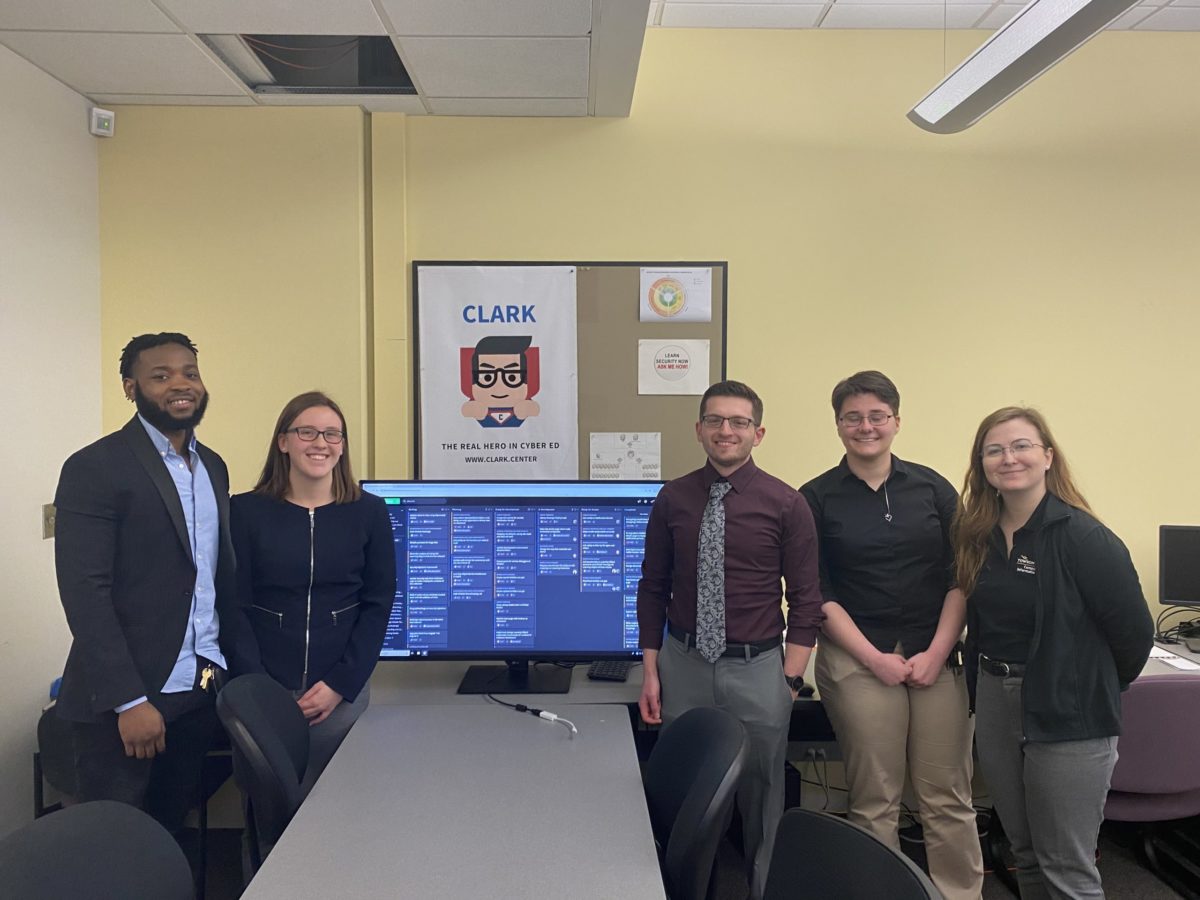At Towson University’s Department of Computer and Information Sciences, there’s a mantra.
“We try to teach students to code responsibly from day one,” said Blair Taylor, a clinical professor in the department who returned to the university recently after a stint with the Fort Meade-based National Security Agency.
That means as faculty are educating students in building technology, they’re also integrating cybersecurity principles into computer security education. And it starts from the earliest courses.
“What we are trying to get to here is students internalizing the concept of writing a piece of code, and knowing where the vulnerabilities inherently are,” said Sidd Kaza, the department’s chair. “It’s a big deal to do that as you’re learning how to code.”
The department’s aims have resonated beyond campus. A National Science Foundation-funded program called Security Injections, which featured 20-minute modules that faculty could deploy to guide students through checking for vulnerabilities, became nationally influential.
But it’s still a fledgling area in education. And when it comes to building curriculum, there’s a lot of steps involved to ensure that it has gone through a quality assurance process, is tied to specific outcomes and lined up with guidelines for cybersecurity accreditations that students might be seeking to obtain.
So they realized there was a need for a library where faculty could go to find good material, and guide faculty in the process of building curriculum.
In 2017, the NSA began funding efforts to develop a new platform called CLARK. Developed and managed by a team of students, it brought together groups from over 55 schools that received funding from NSF and NSA to build curriculum. Working with these faculty on a standard way to enter the content, they also built a system so folks could contribute and consume the materials.
We are a software development shop. We build this application to scale. We build this for fault tolerance. We are using APIs. We are completely open source.
Now, it provides access to more than 700 “learning objects,” such as labs, videos, lecture notes and other formats, that have gone through a quality assurance process.
“In all cases there’s been a team of experts reviewing it, and they’re fed back to the faculty for them to revise,” said Taylor, who co-directs the effort along with Kaza. That helps both the faculty ensure they are putting together quality curriculum, and provides the curriculum as a resource for others.
It also organizes some of the materials into collections, and is searchable. For faculty, the materials are freely accessible.
The development has created a startup environment for students.
“We are a software development shop,” said Paige Zaleppa, who is the product manager. “We build this application to scale. We build this for fault tolerance. We are [using] APIs. We are completely open source.”
Hanging their banner in the graduate research lab, a team of five undergraduate and graduate students works on the platform. In all, 20 students have been involved over the last several years, and it has grown into a tight-knit group for students to learn and mentor others, they said. After getting his undergraduate degree, Nick Visalli decided to stay at TU for his master’s, and has stayed with CLARK, for instance.
Eni Olaniyan, who is the newest member, said he previously worked with the Baltimore Orioles and UPS in IT and analytics roles.
“This is by far the smartest group of people I’ve ever worked with in my life,” he said. “I come in every day and I learn.”
Given the crowdsourced nature of the platform, the faculty who contribute new materials play a big role, too.
With the shift toward online instruction that will come with the school closures brought by the COVID-19 pandemic, that will be particularly important. Many faculty will be teaching online. So the CLARK the team is working to create a new collection called Plan C that will be made up of videos and online assignments. They’re preparing a streamlined review process to get it ready to be integrated quickly.
“Our editorial and development teams are standing by, ready to help faculty use the existing material on CLARK as well as develop new curriculum on our platform,” Zaleppa said.







